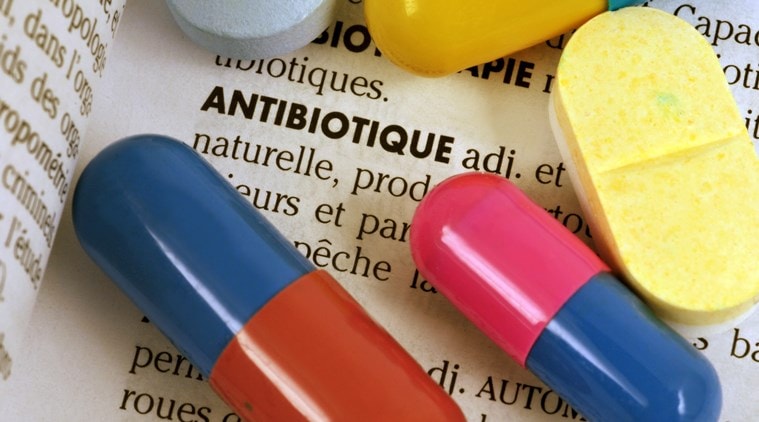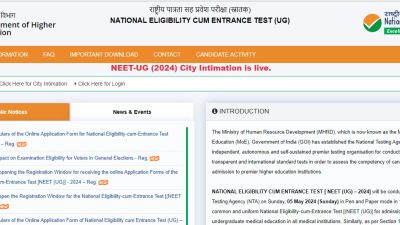- India
- International
World Antibiotic Awareness Week 2019: All you need to know about drug resistance
Even though antimicrobial resistance is considered a natural process, the misuse of antibiotics in humans and animals is accelerating the process.
 Consuming antibiotics when one doesn’t need them speeds up the process of antibiotic resistance. (Photo: Getty Images/Thinkstock)
Consuming antibiotics when one doesn’t need them speeds up the process of antibiotic resistance. (Photo: Getty Images/Thinkstock)
Antibiotics are commonly used to treat bacterial infections, but public awareness and understanding of antibiotic resistance is low, as per World Health Organization (WHO). In 2015, the 68th World Health Assembly endorsed the Global Action Plan on Antimicrobial Resistance, calling for a dedicated global campaign to raise public awareness and understanding of antibiotic resistance. As a result, the World Antibiotic Awareness Week (WAAW) is observed every November to promote global education on antibiotics, how they should be used, and the growing risks of antibiotic resistance. It is commemorated by governments, health facilities, schools and communities across the globe. This year it is being observed from November 18 to 24 and aims to highlight the best practices among the general public, health workers and policymakers to help stop the further emergence and spread of antibiotic resistance.
Even though antimicrobial resistance can be termed a “natural process”, the misuse of antibiotics in humans and animals is accelerating the same. A large number of infections such as tuberculosis, pneumonia and gonorrhoea are becoming very difficult to treat since the antibiotics used for their treatment are becoming less effective.
Be careful! Antibiotics can make you more prone to infection
Consuming antibiotics when one doesn’t need them speeds up the process of antibiotic resistance. Infections resistant to antibiotics are more complicated and almost impossible to be treated. Calling for awareness, WHO is coordinating a global campaign ‘Handle with care’ to encourage best practices for antibiotic use.
Dr Poonam Khetrapal Singh, WHO Regional Director for South-East Asia, mentioned in a press statement titled ‘Adopt and implement high-impact interventions to secure the future of antibiotics and rollback the global AMR crisis’, “Antimicrobial resistance is a global crisis that threatens the future of our most precious drugs: antibiotics. Across the world, AMR kills an estimated 700 000 people annually, including 230 000 from multi-drug resistant tuberculosis. By 2050, unless urgent action is taken, AMR is expected to kill 10 million annually.”
Despite many reports on resistant microbes, there is not much data on their health impact. As an indication, about 56,524 neonates die each year from resistance-attributable neonatal sepsis caused by bacteria resistant to first-line antibiotics, according to a 2016 Lancet study.

India developed its National Action Plan on AMR in 2017 but only Kerala and Madhya Pradesh have come up with state action plans.
The health ministry identified AMR among 10 top priorities on which to collaborate with the WHO.
#AntibioticResistance is a serious global concern. We must take steps to slow it down. Awareness required over dangers of antibiotic abuse. pic.twitter.com/ugsGlzursh
— Dr Harsh Vardhan (@drharshvardhan) September 24, 2016
Antimicrobial resistance hasn’t been given adequate attention in sustainable development goals (SDG) on poverty (SDG 1), food production (SDG 2), health (SDG 3), economic growth (SDG 8), inequality (SDG 10), and the environment (with specific reference to SDG 6 on water, SDG 14 on life below water and SDG 15 on life on land).
What can we do to combat antibiotic resistance?
For this, some practices can be followed, such as not missing the antibiotic dose; if it has been prescribed for three days, it must be taken for as many days even if the symptoms are relieved. Leaving the course mid-way may lead to the onset of infection again. Another thing is to stop taking antibiotics without prescription so that doctors can assess the condition and prescribe an optimal dosage.
View this post on Instagram
Celebrity nutritionist Rujuta Diwekar suggested three ways not to become prone to antibiotic resistance. “Rest, water and have curd rice,” she posted on Instagram.
She added, “In most cases, they can do in a week what antibiotics can do in a day without any side-effects and without getting you resistant to drugs (so that they can help when really needed).”
More Lifestyle
Apr 24: Latest News
- 01
- 02
- 03
- 04
- 05

























